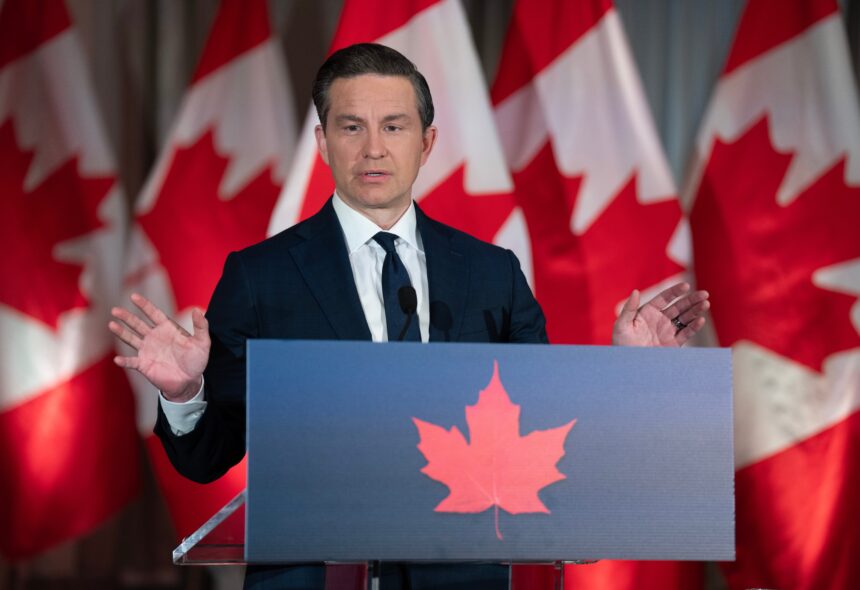In a dramatic escalation of political tensions that threatens to redefine Canada’s upcoming election landscape, Conservative Leader Pierre Poilievre has issued an unprecedented demand for Liberal star candidate Mark Carney to fully divest his investment portfolio. The confrontation, which erupted during yesterday’s press conference in Ottawa, centers on what Poilievre describes as “woefully inadequate” conflict of interest protections surrounding the former Bank of Canada governor’s substantial financial holdings.
“The so-called ‘ethical screens’ that Mr. Carney proposes are nothing more than smoke and mirrors designed to protect his vast fortune while he makes decisions that could directly benefit his investments,” Poilievre declared to a room of journalists. “Canadians deserve better than conflict-of-interest kabuki theater from someone seeking to control our nation’s economic future.”
The controversy stems from Carney’s recent announcement that he would place his assets in a blind trust and implement ethical screens if elected and appointed to cabinet. Financial disclosure documents revealed last week indicate Carney’s portfolio includes significant holdings in energy, technology, and financial sectors – industries directly affected by federal policies he might influence.
Ethics experts remain divided on whether Carney’s proposed measures meet the standard required for high public office. Professor Duff Conacher from Democracy Watch told CO24 Politics that “blind trusts themselves can be problematic when an official already knows what assets they contain before entering office,” while former Ethics Commissioner Mary Dawson noted that “screens are standard practice for many cabinet ministers with complex holdings.”
The Liberal Party has vigorously defended their star recruit, with Prime Minister Justin Trudeau stating at a Canada News event in Vancouver that “Mark Carney has always demonstrated the highest ethical standards throughout his distinguished career in public service and international finance. These attacks represent desperate politics from a Conservative leader with no economic plan of his own.”
Sources within the Liberal campaign, speaking on condition of anonymity, revealed to CO24 News that Carney is preparing a comprehensive response that will outline additional transparency measures beyond legal requirements. “Mark understands the importance of public trust and intends to exceed the standards set by any previous finance minister,” the source indicated.
The controversy has particularly resonated with voters in key battleground ridings in Ontario and Quebec, according to recent polling data. Political analyst Stephanie Levitz observed that “this ethics debate touches on deeper questions about whose interests are being served in government – ordinary Canadians or the financial elite – making it potentially more damaging than typical political scandals.”
Economic implications of the confrontation extend beyond electoral politics, with market analysts noting that uncertainty around potential leadership at Finance could impact investor confidence in Canadian markets. A report from RBC Capital Markets suggests that “prolonged ambiguity regarding economic leadership creates unnecessary volatility at a time when stability is paramount,” as reported by CO24 Business.
The ethical standards expected of public officials have evolved significantly since the Harper era, when conflict of interest rules were substantially reformed. International comparisons indicate Canada’s federal ethics regime remains less stringent than those in countries like New Zealand and Denmark, though more robust than American requirements for cabinet officials.
As this political drama unfolds against the backdrop of mounting economic challenges and global instability, Canadians find themselves confronting a fundamental question: In an era of complex global finance, can we create ethical frameworks that genuinely separate public service from private interest, or have we accepted a system where the appearance of propriety has become more important than its substance?

























